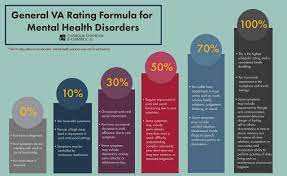VA Medical Benefits Eligibility: Understanding Your Options
The Department of Veterans Affairs (VA) provides a wide range of healthcare benefits to eligible veterans. These benefits are designed to ensure that those who have served our country have access to quality medical care. If you are a veteran, it is important to understand the eligibility requirements for VA medical benefits and how to navigate the application process.
Eligibility for VA medical benefits is based on several factors, including your service history, discharge status, and income level. Generally, veterans who served in active duty and were not dishonorably discharged are eligible for VA healthcare. However, there are exceptions and specific criteria that need to be met.
To determine your eligibility for VA medical benefits, you will need to apply through the VA healthcare enrollment system. The application process involves completing an application form (VA Form 10-10EZ) and providing supporting documents such as your military discharge papers (DD214), proof of income, and any other relevant medical records.
When evaluating applications, the VA uses priority groups to determine eligibility. These groups are based on a variety of factors such as service-connected disabilities, income level, and whether you served in combat zones or were a prisoner of war. Priority Group 1 includes veterans with service-connected disabilities rated 50% or higher, while Priority Group 8 includes veterans with no service-connected disabilities and higher income levels.
It is important to note that even if you do not meet the eligibility criteria for free or reduced-cost healthcare through the VA, you may still be eligible for other programs such as the Veterans Choice Program or Medicaid. These programs can provide alternative options for accessing healthcare services.
Once enrolled in VA healthcare, eligible veterans gain access to a comprehensive range of services including primary care, specialized care (such as mental health services), prescriptions, preventive care, and emergency care. The VA operates an extensive network of hospitals, clinics, and community-based outpatient centers across the country to ensure veterans have access to care.
If you are unsure about your eligibility or need assistance with the application process, there are resources available to help. The VA has dedicated enrollment counselors who can provide guidance and answer any questions you may have. Additionally, many veteran service organizations and advocacy groups offer support and resources to help veterans navigate the VA healthcare system.
In conclusion, understanding your eligibility for VA medical benefits is crucial for accessing the healthcare services you deserve as a veteran. By familiarizing yourself with the requirements and seeking assistance when needed, you can ensure that you receive the care and support that you have earned through your service to our country. Remember, your health matters, and the VA is here to support you every step of the way.
Frequently Asked Questions: Eligibility for VA Medical Benefits
- Who is eligible for VA medical benefits?
- What are the eligibility requirements for VA medical benefits?
- How do I apply for VA medical benefits?
- What documents do I need to provide to be eligible for VA medical benefits?
- Are dependents of veterans eligible for VA medical benefits?
- Is there an income requirement to be eligible for VA medical benefits?
Who is eligible for VA medical benefits?
Eligibility for VA medical benefits is determined based on several factors. Generally, veterans who have served in the active military, naval, or air service and were not dishonorably discharged may be eligible for VA healthcare. However, eligibility criteria can vary depending on different factors such as service history, income level, and specific circumstances. Here are some key points to consider:
- Service Requirements: To be eligible for VA medical benefits, you must have served in the active military, naval, or air service and meet certain minimum service requirements. These requirements differ depending on when and where you served.
- Discharge Status: Generally, veterans who received an honorable or general discharge are eligible for VA healthcare benefits. However, those with other types of discharges such as dishonorable discharges may have limited or no eligibility.
- Priority Groups: The VA uses priority groups to determine eligibility and access to specific healthcare services. Priority groups are based on factors such as service-connected disabilities, income level, and other special circumstances. Priority Group 1 includes veterans with service-connected disabilities rated 50% or higher, while Priority Group 8 includes veterans with no service-connected disabilities and higher income levels.
- Means Testing: Some veterans may be subject to a means test to determine their eligibility for certain benefits or if they need to make co-payments for care received through the VA system. This means test assesses a veteran’s household income and net worth.
It is important to note that eligibility criteria can change over time due to updates in laws and regulations. It is recommended that veterans consult with the Department of Veterans Affairs (VA) directly or visit their official website to get the most up-to-date information regarding eligibility requirements.
Additionally, there are programs like the Veterans Choice Program (VCP) that provide alternative options for accessing healthcare services outside of the traditional VA system. These programs may have their own specific eligibility criteria.
If you are unsure about your eligibility or need assistance with the application process, the VA has enrollment counselors who can provide guidance and answer any questions you may have. They can help determine your specific eligibility and guide you through the application process.
What are the eligibility requirements for VA medical benefits?
The eligibility requirements for VA medical benefits are based on various factors, including your service history, discharge status, and income level. Here are the general guidelines:
- Service Requirements: You must have served in the active military, naval, or air service and not have received a dishonorable discharge. Reservists and National Guard members may also be eligible if they were called to active duty by a federal order and completed the full period for which they were called.
- Length of Service: The length of your service may affect your eligibility. For veterans who enlisted after September 7, 1980, or entered active duty after October 16, 1981, there is a minimum service requirement of 24 continuous months or the full period for which you were called to active duty (with some exceptions for certain circumstances).
- Priority Groups: The VA uses priority groups to determine eligibility based on specific criteria such as service-connected disabilities, income level, and other factors. Priority Group 1 includes veterans with service-connected disabilities rated 50% or higher, while Priority Group 8 includes veterans with no service-connected disabilities and higher income levels.
- Income Limitations: Veterans with higher incomes may be subject to copayments for certain services. However, even if you exceed the income threshold for free or reduced-cost healthcare through the VA, you may still be eligible for other programs such as the Veterans Choice Program or Medicaid.
- Enrollment Process: To apply for VA medical benefits, you need to complete an application form (VA Form 10-10EZ) and provide supporting documents such as your military discharge papers (DD214), proof of income (if applicable), and any other relevant medical records.
It is important to note that these requirements are general guidelines and there may be exceptions or additional considerations based on individual circumstances. If you have questions about your specific eligibility or need assistance with the application process, it is recommended to contact the VA or speak with a VA enrollment counselor for personalized guidance.
Remember, the VA is committed to ensuring that eligible veterans have access to quality healthcare services. Understanding your eligibility and taking the necessary steps to enroll can help you receive the care and support you deserve as a veteran.
How do I apply for VA medical benefits?
Applying for VA medical benefits involves a straightforward process. Here are the steps to follow:
- Determine your eligibility: Before applying, make sure you meet the eligibility requirements for VA medical benefits. Generally, veterans who served in active duty and were not dishonorably discharged are eligible. However, specific criteria may apply based on factors such as service-connected disabilities, income level, and other circumstances.
- Gather necessary documents: Collect the required documents to support your application. These typically include your military discharge papers (DD214), proof of income (such as tax returns or pay stubs), and any relevant medical records.
- Complete the application form: Obtain and fill out VA Form 10-10EZ, which is the Application for Health Benefits. This form can be accessed online through the VA website or obtained from your local VA healthcare facility.
- Submit your application: There are multiple ways to submit your completed application form and supporting documents. You can mail it to the nearest VA healthcare enrollment center, hand-deliver it to a local VA facility, or apply online through the Veterans Online Application (VA.gov).
- Await notification: After submitting your application, the VA will review it and determine your eligibility based on various factors such as priority groups and available resources. Once processed, you will receive a notification of your enrollment status.
- Attend any required appointments: If approved for VA medical benefits, you may be scheduled for an initial health examination at a VA facility or referred to a specific healthcare provider within the VA network.
It’s important to note that while waiting for approval or if you have immediate healthcare needs, you can still seek care through other programs like Medicaid or private insurance if available to you.
If you need assistance with the application process or have questions about eligibility requirements, consider reaching out to a local Veterans Service Organization (VSO) or contacting the nearest VA healthcare facility’s enrollment office. They can provide guidance and support throughout the application process.
Remember, applying for VA medical benefits is an important step towards accessing the healthcare services you deserve as a veteran.
What documents do I need to provide to be eligible for VA medical benefits?
To be eligible for VA medical benefits, you will need to provide certain documents as part of the application process. While the specific requirements may vary depending on your circumstances, here are some common documents that are typically requested:
- Military Discharge Papers (DD214): This document provides proof of your military service and discharge status. It includes information such as your dates of service, character of service, and any awards or commendations received.
- Proof of Income: The VA considers income when determining eligibility for certain healthcare benefits. You may need to provide documentation such as tax returns, W-2 forms, or pay stubs to verify your income level.
- Proof of Citizenship: You will need to show proof of your U.S. citizenship or legal residency status. This can be done by providing a copy of your birth certificate, passport, or naturalization certificate.
- Medical Records: If you have any existing medical conditions or disabilities related to your military service, it is helpful to provide relevant medical records and documentation from non-VA healthcare providers.
- Insurance Information: If you have other health insurance coverage (such as through an employer), you may need to provide details about your insurance plan.
It’s important to note that these documents are not an exhaustive list and additional documentation may be required depending on individual circumstances or specific programs within the VA healthcare system.
If you have any doubts or questions about which documents are needed in your particular case, it is recommended to contact the VA directly or consult with a VA enrollment counselor who can guide you through the application process and ensure that you have all the necessary paperwork ready.
Remember, gathering and providing accurate documentation is crucial for establishing eligibility for VA medical benefits and ensuring a smooth application process.
Are dependents of veterans eligible for VA medical benefits?
Yes, dependents of veterans may be eligible for certain VA medical benefits. The eligibility criteria for dependents vary depending on the specific benefit program. Here are some key points to consider:
- CHAMPVA (Civilian Health and Medical Program of the Department of Veterans Affairs): This program provides healthcare coverage for the spouse or child of a veteran who is permanently and totally disabled due to a service-connected condition, or who died as a result of their service-connected disability. Dependents must apply separately for CHAMPVA benefits.
- TRICARE: TRICARE is a healthcare program that covers active duty service members, retirees, and their eligible family members, including spouses and children. It is not exclusive to veterans but extends to those serving in the military.
- VA Caregiver Program: The VA Caregiver Program provides support and resources to caregivers of post-9/11 veterans who have significant disabilities. While this program primarily focuses on providing assistance to caregivers rather than direct medical benefits, it can indirectly contribute to better access to healthcare services for eligible dependents.
It is important to note that eligibility requirements may vary depending on the specific benefit program, so it is recommended to consult with the Department of Veterans Affairs or visit their official website for detailed information regarding eligibility criteria and application processes.
Overall, while not all VA medical benefits extend directly to dependents, there are programs in place that aim to provide healthcare support for eligible family members of veterans.
Is there an income requirement to be eligible for VA medical benefits?
Yes, there is an income requirement to be eligible for VA medical benefits. The VA uses a means test to determine if a veteran qualifies for free or reduced-cost healthcare based on their income level. The means test takes into account the veteran’s household income and the number of dependents they have.
The income threshold for eligibility can vary depending on factors such as geographic location and the number of dependents. Veterans whose income falls below the threshold may qualify for free healthcare services, while those with slightly higher incomes may be eligible for reduced-cost healthcare.
It is important to note that even if a veteran’s income exceeds the threshold for free or reduced-cost healthcare, they may still be eligible for other VA programs and services. Additionally, veterans who do not meet the income requirements can explore alternative options such as the Veterans Choice Program or Medicaid, which may provide access to healthcare services.
To determine your specific eligibility based on income, it is recommended to contact your local VA facility or speak with a VA representative who can provide guidance and assist you in navigating the application process.




